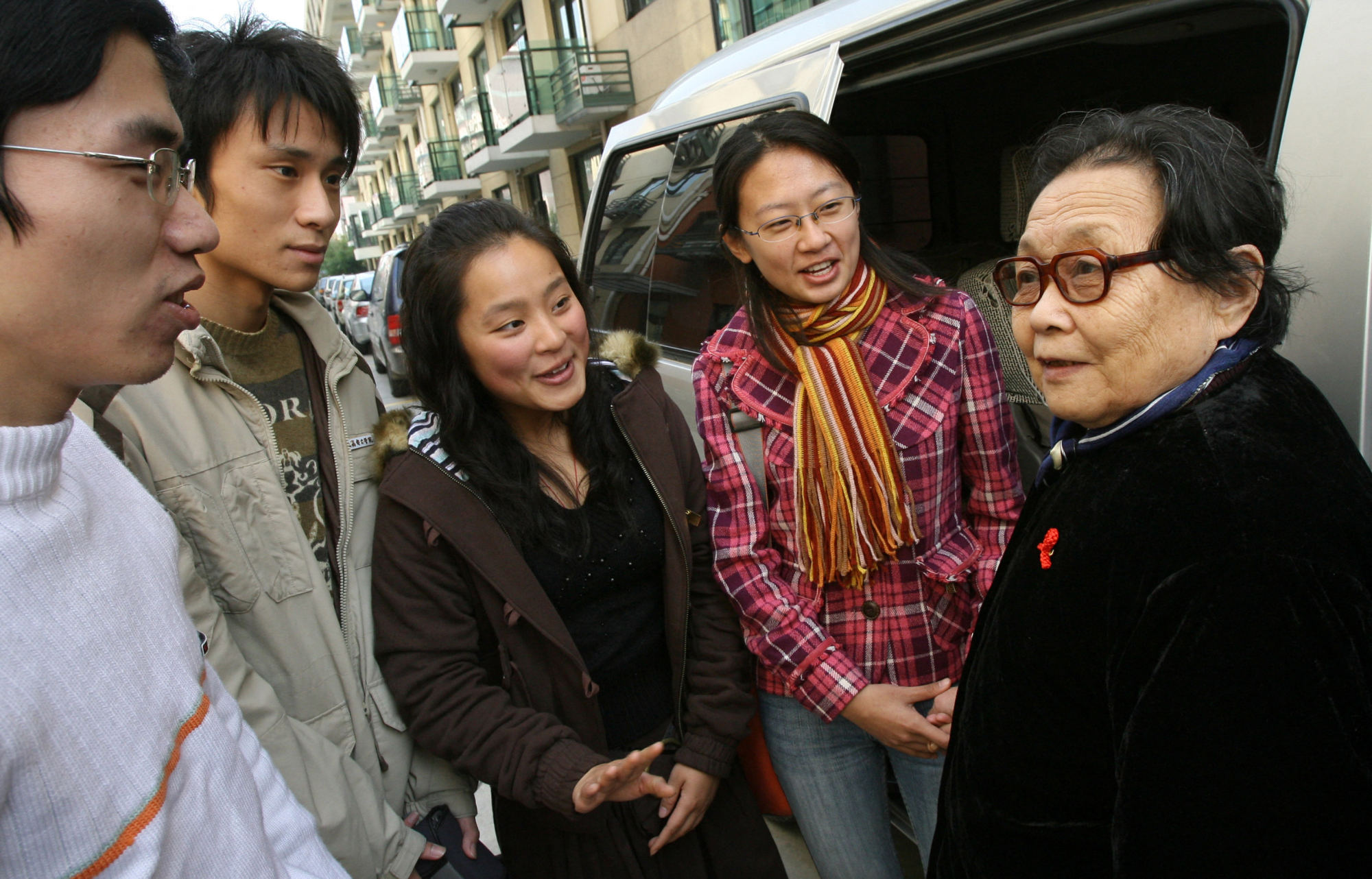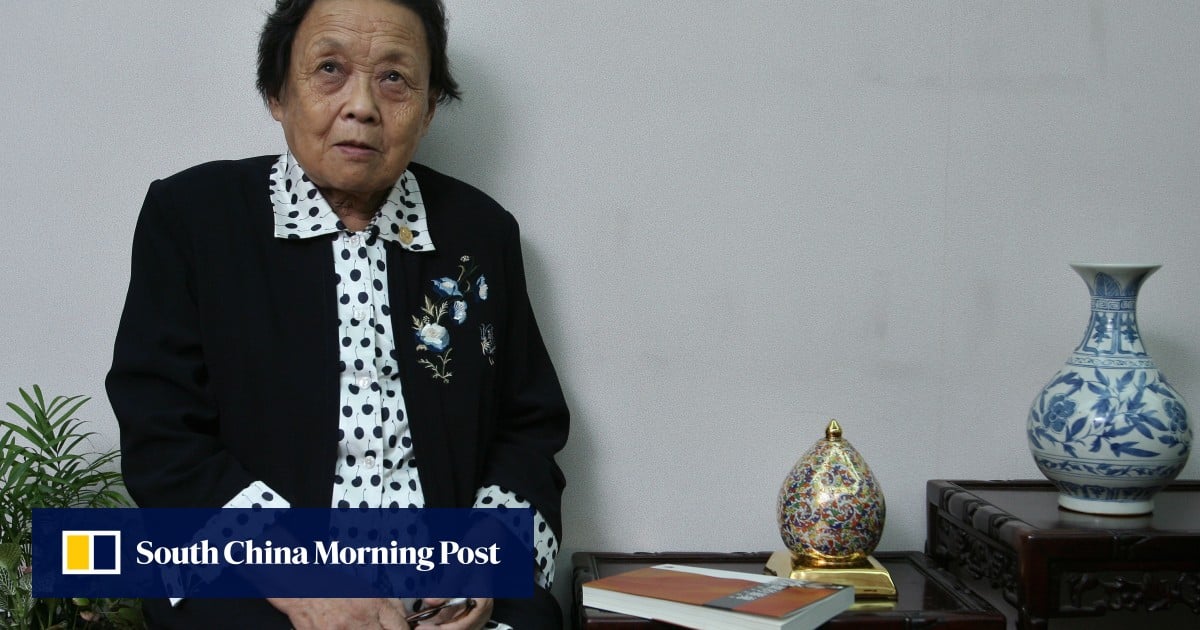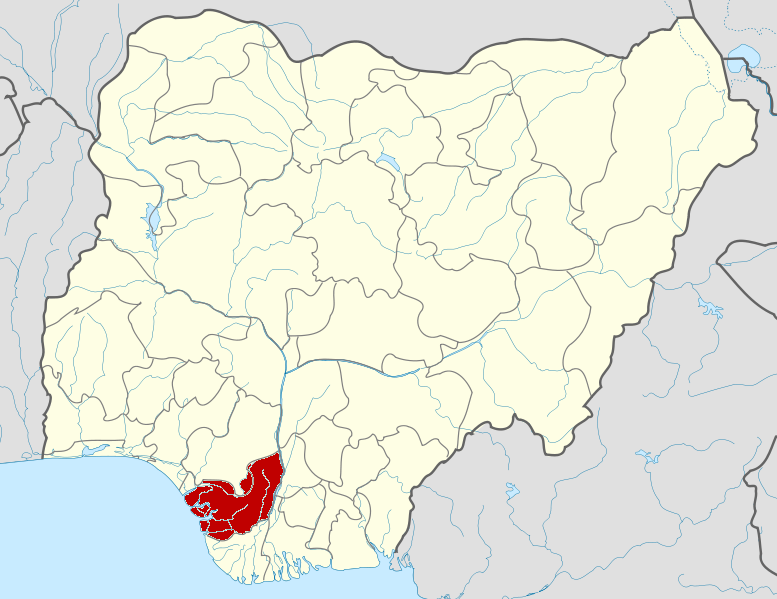Despite her declining health, Gao devoted her years in New York – where she lived in a one-bedroom Manhattan flat – to writing books about China’s handling of the Aids crisis.
Gao lost part of her stomach during the Cultural Revolution and could hardly eat anything but noodles and buns. Her hearing was also impaired and she spoke loudly with the heavy accent of her native Henan in central China.
After she was hospitalised for a week with pneumonia in 2016, Gao went online to express her wish to be cremated after death, and her ashes scattered on the Yellow River.
Chinese blood plasma ‘clear’ of HIV as authorities give mixed messages
Chinese blood plasma ‘clear’ of HIV as authorities give mixed messages
“I do not want what I have worked for and achieved in this life to become a tool for others to gain fame and profit,” she wrote.
Gao’s fight against Aids began in 1996, after her retirement as a respected gynaecologist in Zhengzhou, the provincial capital of her native Henan.
Her interest was sparked when she took part in a consultation for a woman who had not recovered after surgery. The symptoms struck Gao as similar to the books she was reading on Aids, although sexual transmission was ruled out.
Gao’s investigation revealed the patient had contracted the disease from a transfusion during the operation. She realised that even professionals like herself had neglected the fact that Aids could also be spread by blood transmission.
The realisation spurred Gao to take on a new career at the age of 69, as a campaigner for people with HIV-Aids which was ravaging Henan in the 1990s.
Poor sex education the main cause of HIV spread in China
Poor sex education the main cause of HIV spread in China
Estimates vary on the size of Henan’s epidemic, from 50,000 to hundreds of thousands, and even 1 million. Government data in 2004 put the number affected in the central Chinese province as 25,000 people with HIV and 11,000 with Aids.
Gao’s campaign took her to dozens of villages in Henan and it became increasingly clear to her that illegal blood collection stations and unsanitary transfusion practices were driving the epidemic.
Plasma imports were banned by China in the 1980s but the high demand – driven by the booming biomedicine industry – led to the rise in Henan of a hidden economy in the blood product.
Dealers eager to make quick money and ignorant of the consequences – sometimes with the encouragement of local officials – collected blood from donors which was pooled into a central collection point where the plasma was extracted.
12,000 Chinese blood plasma treatments contaminated with HIV
12,000 Chinese blood plasma treatments contaminated with HIV
The rest of the blood was pumped back to the donors so they could recover sooner and donate more often. Once HIV had contaminated the pool it quickly spread.
Gao spent her own money on an educational campaign, printing 670,000 leaflets across Henan, paid for from her earnings writing articles, giving lectures and winning awards.
She also spoke out against the plasma economy and criticised the local government for covering it up. Gao’s findings were reported by some investigative journalists in China and made international headlines.
When then vice-premier Wu Yi, who also headed the health ministry, visited Henan she met Gao and said she had been told HIV was only transmitted sexually and through drug use. “They lied to you!” was Gao’s response.
Wu visited several villages where Aids patients had become infected from their involvement in the plasma economy. After her visit, China officially recognised the existence of blood-transmitted HIV and began an unprecedented survey into the Henan epidemic.
Gao’s interest in the welfare of Aids patients made her home a popular hang-out for people with the disease, as well as activists and educators. She gave tens of lectures every year and continued to send leaflets to support groups. Gao also paid for medicines and helped to support Aids orphans.
But Gao’s work estranged her family. Her three children did not support her efforts and one of her daughters lost her job in the health sector after Gao’s expose.
Gao’s husband, who was also a doctor and tolerant of her retirement activities, took over the family finances and gave her only an allowance after Gao spent her award money and family savings on helping Aids patients and orphans.

In an interview with People.com.cn, Gao said she had spent more than 200,000 yuan (US$28,000) on the Aids educational campaign, and all her prize money from the United Nations, Health and Human Rights and the Ford Foundation.
Gao’s awards included a 2007 honour from the Vital Voices Global Partnership, a non-profit women’s advocacy group, but while her outspokenness contributed to China’s fight against HIV, she also upset local officials, who were embarrassed by the exposure.
She was barred from leaving the country to accept the award until vice-premier Wu intervened at the request of then senator Hillary Clinton.
But Gao was also constantly harassed, with local agents following her and watching her movements. At one point, her phone line was cut. Worried for her freedom, and trying not to implicate her children, Gao left China in 2009 for the US. Her husband had died three years earlier from throat cancer.
Gao was supported in her first year in the US by a visiting scholarship from the University of Columbia and later through private donations. A group of Chinese students took turns to visit Gao, helping her type notes and edit her manuscripts.







